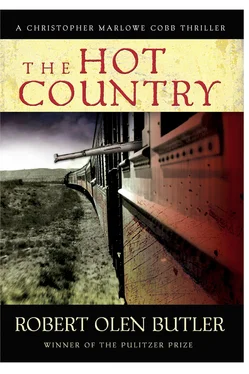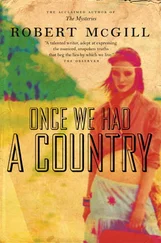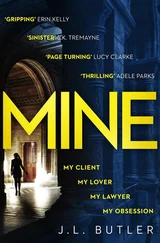Robert Olen Butler
The Hot Country
For Otto Penzler, who inspired and encouraged this book and the ones that will inevitably follow. And for Bradford Morrow, my dear friend and literary brother, who brought Otto into my writing life.
Bunky Millerman caught me from behind on the first day of Woody Wilson’s little escapade in Vera Cruz. Bunky and his Kodak and I had gone down south of the border a couple of weeks earlier for the Post-Express and the whole syndicate. I’d been promised an interview with the tin-pot General Huerta who was running the country. He had his hands full with Zapata and Villa and Carranza, and by the time I got there, el Presidente was no longer in a mood to see the American press. I was ready to beat it back north, but then the Muse of Reporters shucked off her diaphanous gown for me and made the local commandant in Tampico, on the Gulf coast, go a little mad. He grabbed a squad of our Navy Bluejackets who were ashore for gasoline and showers and marched them through the street as Mexican prisoners. That first madness passed quick and our boys were let go right away, but old Woodrow had worked himself up. He demanded certain kinds of apologies and protocols, which the stiff-necked Huerta wouldn’t give. Everybody started talking about war. Then I got wind of a German munitions ship heading for Vera Cruz, and while the other papers were still picking at bones in the capital, I hopped a train over the mountains and into the tierra caliente . I arrived in Vera Cruz, which was the hot country all right, a god-forsaken port town in a desolate sandy plain with a fierce, hot northern wind. But I figured I’d be Johnny-on-the-spot.
Anyways. That Bunky Millerman photo of me. I saw it for the second time some weeks later, after a bit of derring-do that gave me what I expected to be the scoop of a lifetime and a king beat on the other boys, who were all stuck in Vera Cruz sparring with the Army censors over an invasion that clearly wasn’t moving out of town. Seemed there’d been something else going on all this time, right under our noses. When I’d finally gotten the real dope on that and figured out how to cable it to the home office uncensored, I got an immediate wire back from my editor in chief, Clyde Fetter. He called it a knockout of a story — and it was — the only problem being his wire ended with a “but” as big as Sophie Tucker’s wagging away at me: Before he could go to press with this, he needed me back in Chicago in person, as soon as I could get there.
So I found myself in Clyde’s Michigan Avenue office at the Post-Express on a hot afternoon in May. His eighth-floor windows were thrown open to the lake but it wasn’t giving us nada, not enough breeze even to nudge the match flame he’d just struck up. What he didn’t do was cross his feet up on the corner of his desk for what has become the traditional cigar-lighting at the start of one of our big-story sit-downs. I was still attuned to ominous signs after all I’d been through lately, so I didn’t miss the significance of his feet being on the floor. He had more on his mind than figuring out the front-page layout and how to ragtime up our leads. Whatever he really had on his mind was awkward enough that he went cross-eyed focusing on the end of the cigar in his mouth, and he wasn’t saying a word.
“So,” I said. “Is our man going to file for the Senate race?” By which I meant Paul Maccabee Griswold, the Hearst of Hyde Park, Clyde’s and my überboss. He had till June 1 to file for the primary and he was getting itchy for power of a different sort. I intended the remark simply as small talk to loosen Clyde up.
“Word is,” he said, without so much as glancing from the end of his cigar.
And then I saw the postcard on the cork wall behind his desk. It was surrounded by clippings and Brownie shots and news copy, but it jumped off the wall at me. Clyde was still stalling, so I circled around him and looked close.
It was me all right. Bunky had snapped me from behind as I was walking along one of the streets just off the zócalo, which was the main square they call the Plaza de Armas, and there’d been a gun battle. Bunky had it printed up on a postcard-back for me, and I sent it off to Clyde. I’d inked an arrow pointing to a tiny, unrecognizable figure way up the street standing with a bunch of other locals. In the foreground I was striding past a leather goods shop. The pavement was wide and glaring from the sun. Even from behind I had the look of a war correspondent. There but not there. Unafraid of the battle and floating along just a little above it all. Not in the manner of Richard Harding Davis, who came down for another syndicate after the action got started and who wore evening clothes every night at his table in the portales . Not like Jack London either, who was in town looking as if he’d hopped a freight from the Klondike. I had a razor press in my dark trousers and my white shirt was fresh. We boys of the Fourth Estate love our image and our woodchopper’s feel for words. It’s an image you like your editors to have of you, and so I sent this card, even though by the time I did, I’d already begun to learn a thing or two I wouldn’t put in a story for the Post-Express or anybody else. Did the lesson of those first few days help lead me to the big story? Maybe. I’d have to think that over.
But first I pulled the card off the wall and turned it over. I’d scrawled in pencil, “After the battle notice the pretty Señorita’s in this photo. The one in white does my laundry.” I drew my thumb over the words, compulsively noticing the dangle of the first phrase, which was meant like a headline. I should have put a full stop. “After the battle.” And I’ve made “Señorita’s” singular possessive, capitalizing it like a proper name. Maybe this was more than sloppiness in a hasty, self-serving scrawl on a postcard. It was, in fact, true that I had no interest in the other girls. Just in whatever it was that this particular señorita had inside her. Luisa Morales.
Clyde took a guess at where my mind was. “Good thing we’ve got a copy desk,” he said, a puff of his relit cigar floating past me.
“If I were you I wouldn’t trust a reporter who bothered to figure out apostrophes anyway,” I said. But I wasn’t looking at him. Now that I had him small-talking, I didn’t care. Something more absorbing was going on.
I turned the card over once more and I looked at Luisa, dressed in white, far away. And I was falling into it again, the lesson I was about to learn in the photo seemingly lost on me. Because what I was not looking at in the picture or even while standing there in Clyde’s office, really, were the two dead bodies I’d just walked past, still pretty much merely an arm’s length away. A couple of snipers, also in white, dead on the pavement. That’s what they paid us for, Davis and London and me and all the rest of the boys. To take that in and keep focused. I got the head count and I worked out the politics of it, and I could write the smear of their blood, their sprawled limbs, their peasant sandals without a second glance. I could fill cable blanks one after the other with that kind of stuff while parked in a wisp of sea breeze in the portales over a glass of mezcal . If I got stuck finding the right phrase for the folks on Lake Shore Drive or Division Street or Michigan Avenue, I just tapped a spoon on my saucer and along came a refill and inspiration, delivered by an hombre who might have ended up on the pavement the next morning showing the bottoms of his sandals.
“So what became of your señorita, do you suppose?” Clyde said.
Читать дальше












